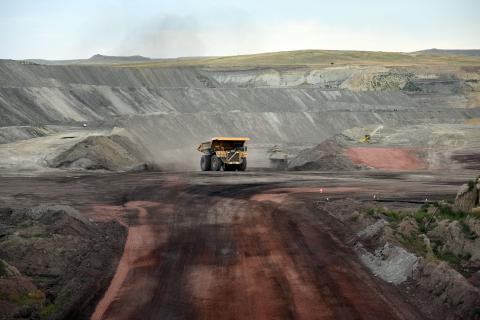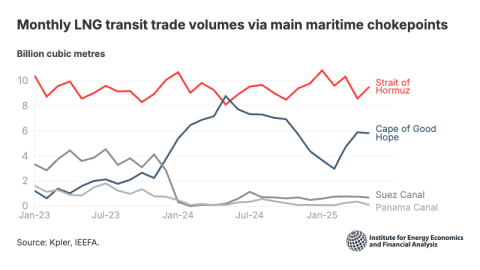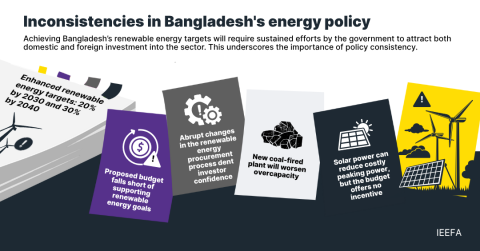End This Coal Subsidy Now (Part 3): A Disingenuous Industry Opposes Paying Its Way
In November, representatives of the National Mining Association got a meeting with federal regulators at which they made a plaintive pitch for leaving outdated coal-lease royalty polices in place.
Association representatives argued against the closure of a longstanding loophole by saying that the federal government would be taxing the industry unfairly if that loophole were to close. The industry pitch was—and is—that its practice of selling taxpayer-owned coal to its subsidiaries, which then turn around and sell it for much higher royalty-free prices abroad—should pay the standard 12.5 percent federal royalty on the first, lower-priced transaction only.
It’s a nice try, and it’s worked for a long time, but the industry case loses plausibility because the loophole—used by Alpha Natural Resources, Arch Coal, Cloud Peak Energy and Peabody Energy—does not ultimately treat these subsidiaries as separate entities in their reports to investors. On the contrary, the companies make clear to investors that because of the loophole they achieve a kind of excess profit from typical export sales.
If the transport and logistics subsidiaries involved weren’t owned and controlled by the coal company parent there wouldn’t be much, if any, incentive to mine U.S. coal for export. The key to profit for the parent company is in the effective integration of operations—which means the effective usage of this egregious loophole. The current regulatory treatment of royalties and its attendant accounting protocols allow the company to make one set of profit and loss presentations for the purpose of royalty payments and another set of financial presentations for investors (and presumably taxing authorities).
This is of course disingenuous at best, and it’s why regulators are poised to get rid of the outdated loophole and require companies that take federally owned coal to pay a fair royalty on it.
ONE OTHER THING: THE ROYALTY PROGRAM SHOULD BE AUDITED EVERY FIVE YEARS. The proposed reform, which gets most of the intent intent right, misses on a couple of notes, as we pointed out on Friday.
The absence of any formal, regular review process is one of the overlooked points.
The current arrangement, which subsidizes coal companies at great expense to taxpayers (as outlined in public comments we filed last week), went unreviewed and unaudited for 30 years, a dusty rule archived on a dusty shelf inside a dusty warehouse in Washington.
No such regulation should sit out of sight and out of mind for so long, and as the Office of Natural Resource Revenues (ONRR) weighs its proposed reform it should incorporate language that assures responsible and timely reviews of the coal-royalty program.
Our recommendation is to add a requirement to audit the royalty program every five years, since coal markets are changing so rapidly today and also because it’s good public policy.
It’s shouldn’t take public demands of Congress for an audit from the Government Accountability Office, or complaints and revelations to the Department of Interior Inspector General, for the government to institute responsible independent reviews and reports on the export of federally own coal.
With a regular audit, everybody wins.
Routine, thorough public reviews protect the public from well-financed efforts by the coal industry to weaken these regulations through lobbying and other means, and they protect the coal industry from ONRR overreach.
Tom Sanzillo is IEEFA’s director of finance.















